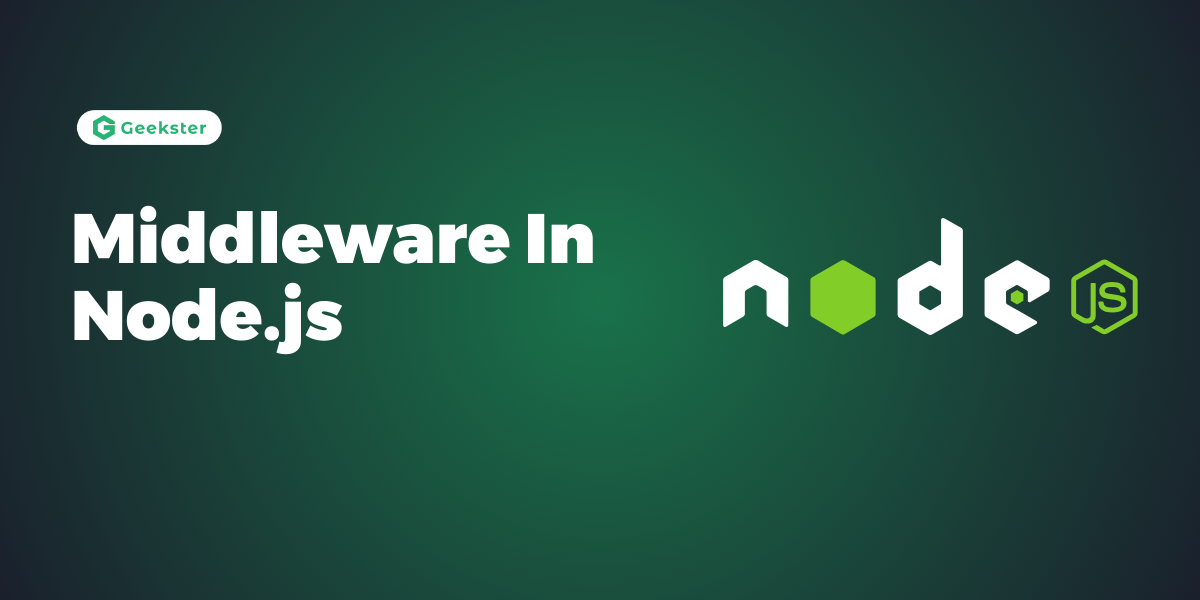Introduction
Node.js has revolutionized web development with its asynchronous, event-driven architecture, allowing for high-performance, scalable applications. A key feature of Node.js that contributes to its flexibility and power is middleware. Middleware functions serve as the backbone of request processing in web applications, particularly when using frameworks like Express.js. This article delves into what middleware is, how it works, and how to effectively use it in your Node.js applications.
What is Middleware?
Middleware functions are functions that have access to the request object (req), the response object (res), and the next middleware function in the application’s request-response cycle. These functions can perform a range of tasks, such as:
- Executing code: Running any kind of logic before passing control to the next middleware.
- Modifying the request and response objects: Altering the request and response objects to suit the needs of subsequent middleware or routes.
- Ending the request-response cycle: Sending a response to the client, thereby ending the request-response cycle.
- Calling the next middleware: Passing control to the next middleware function.
Types of Middleware
- Application-level Middleware: Defined and used across the entire application.
- Router-level Middleware: Works similarly to application-level middleware but is bound to an instance of
express.Router(). - Error-handling Middleware: Specifically designed to handle errors in the application.
- Built-in Middleware: Provided by Express.js for common tasks like serving static files.
- Third-party Middleware: Middleware created by the community to handle common use cases.
Conclusion
Middleware in Node.js is a powerful tool that enhances the functionality and maintainability of server-side applications. By allowing developers to create modular, reusable components, middleware facilitates cleaner code, better debugging, and scalability. Understanding and effectively utilizing middleware can significantly improve the efficiency and robustness of your Node.js applications. Embrace the power of middleware to streamline your development process and build sophisticated, high-performing web servers.
Frequently Asked Questions
1. What is middleware in Node.js?
Middleware is a function that processes requests and responses in a Node.js application, often used for tasks like logging, authentication, and error handling.
2 How do I create middleware in Node.js?
In Express.js, create a function that takes req, res, and next as arguments, then use app.use() to apply it.
3 Can I use multiple middleware functions for a single route?
Yes, you can chain multiple middleware functions by passing them as arguments in the route handler.

